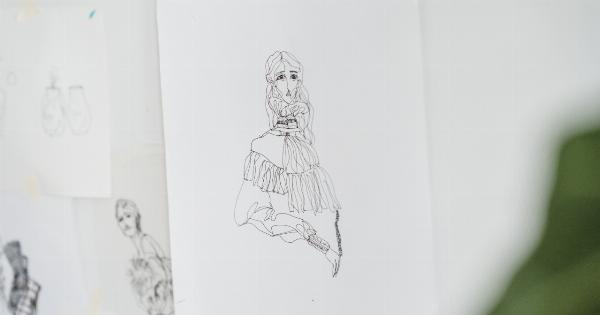Humans have always been fascinated by characters and their transformation. From the days of ancient myths to modern-day movies and TV shows, the evolution of character has been a constant source of entertainment and inspiration for many.
The portrayal of relatable and dynamic characters has the power to move, motivate, and even transform its spectators.
What are Characters?
Characters are representatives of a story, a movie, or any creative work. They are the embodiment of the piece’s narrative and its underlying message.
They may be fictional, real-life, or even semi-fictional characters that often serve to connect the audience with a story’s world. Characters are what makes these stories so appealing and memorable as they convey the moral and emotional themes that shape the plot and inspire the audience.
The Evolution of Characters from Ancient Times
Characters have been a part of humanity’s storytelling tradition for as long as civilization has existed.
Myths and legends originating from ancient civilizations like the Sumerians, Greeks, and Romans provide a glimpse into how character portrayal has evolved over the centuries. These stories generally represented a specific moral or religious belief. They often featured divine characters, who were powerful beings that wielded an immense influence on the world.
The ancient Greeks, who were particularly skilled at telling stories, typically featured flawed characters whose journeys were filled with challenges and transformations. This is exemplified in the story of the tragic hero Oedipus.
In the Greek mythology, Oedipus was a great king who unknowingly killed his father and married his mother, bringing about his downfall. The Greeks used these characters to convey the message that humans are not perfect. Rather they inevitably suffer from human foibles like greed, pride, and vanity.
The Evolution of Characters in Modern Times
While the portrayal of characters in ancient tales had a specific focus on divinity, purity, flaws, or morals, the modern era has seen a different approach.
Modern characters are more relatable, flawed, and fallible since they’re not depicting gods from the Pantheon. They portray everyday people undergoing exciting yet exhausting experiences, transforming in the process. These characters’ journeys are not only informative but also reflective of the society that creates them.
Because society changes, character portrayal changes with it.
The transformation in character development could be attributed to numerous factors, mainly due to the increasing practicality of societies in the modern era.
With mechanization and industrialization yielding unprecedented scientific and technological progress, people started moving away from the pantheon of gods and focused more on themselves. People stopped glorifying religious and mythological figures and instead saw a reflection of themselves in their beloved characters.
The New Age: Modern Characters as Reflecting Reality
Modern audiences’ desire for characters that reflect their lives is undeniable. People are yearning to see someone they can relate to, someone with problems similar to theirs, someone whose journey reflects their own.
Movies, TV shows, and books reflect modern-day realities, whether it is the challenges we face daily or the social dynamics of a changing world.
Characters are valuable as they offer a personal portrayal of unique existential struggles that people go through in their lives.
In movies such as “The Godfather,” the story is about power and betrayal, while movies like “Rocky” talk about challenging stereotypes in life. These characters’ stories inspire people to be their best selves, to never give up, and always strive for more, even in the face of adversity.
Modern characters have evolved to become reflective mirrors of society instead of entities that exist purely to be worshipped, lauded, and revered strangers.
The Future of Characters and Their Evolution
The future of characters is a subject of debate with regards to their evolution. However, one thing that’s sure is the continued development of characters as a way of connecting with a wide range of people.
These characters will still reflect society’s issues, and the tropes used in character creation will continue to evolve. This evolution will bring about new portrayals of people, culture, race, relationships, and more.
It will bring about a deeper sense of connection and understanding that transcends different cultures, genders, and barriers, making characters more engaging and relevant than ever before.
Conclusion
Evolution has played a significant role in shaping characters over the years. From divine beings in ancient myths to real-life personality in modern-day movies, the portrayal of characters has evolved tremendously over the years.
Characters have grown to become more relatable, flawed, and reflective mirrors of the society that produces them. They inspire people to be their best selves, to never give up, and always strive for more, even in the face of adversity. And as society continues to evolve, we can only anticipate that our characters’ portrayal will evolve with it.






























